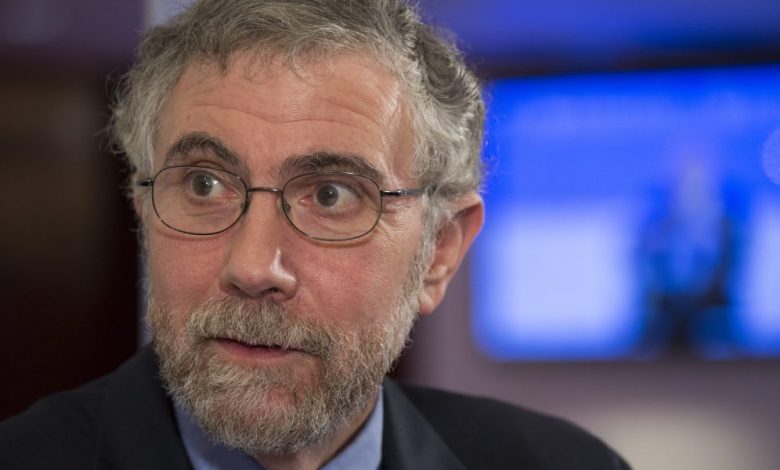Paul Krugman says inflation likely rose in January

Analysts are warning that the next monthly CPI report, due on Tuesday, could show US inflation rising for the first time in six straight months. But one of the country’s leading economists advises against reading too much into it.
Inflation is likely to have risen 0.4% in January from December, while core inflation, which excludes volatile food and energy items, could also rise 0.4%, according to Reuters Poll of economists last week. Rising gasoline costs and flat prices across the economy are partly responsible for the staying power of US inflation and will likely reinforce the Federal Reserve’s view that the fight against rising prices is far from over.
A hot inflation report this week could leave markets nervous as to whether the Fed will stay the course with smaller rate hikes or take more aggressive action to cool the economy. But Tuesday’s numbers may not tell the whole story about inflation, according to economics Nobel laureate Paul Krugman.
in one tweet On Sunday, Krugman forecast “a significant increase” in inflation, but added that Tuesday’s report is unlikely to include enough data to accurately forecast the future trajectory of inflation. While the report is likely to show that prices have risen, Krugman wrote, it will be “for reasons that tell us little about how we actually deal with inflation.”
Where inflation goes from here
Forecasting the path of inflation is a risky game that has brought many economists down in recent years. Krugman himself has admitted to making mistakes in 2021 when he and other economists forecast that inflation would be a volatile factor in the US economy that would soon subside.
But while some economists warned that rising inflation over the past year would require a severe recession and a sharp rise in unemployment to fix it, Krugman remained optimistic about the Fed’s chances of a soft landing and a deep one Avert recession, forecasts so far have been confirmed by the relative health of the economy this year.
However, despite the recent positive news, the road to taming inflation is a long one, and bumps along the way are almost inevitable. “The disinflationary process, the process of bringing inflation down, has started,” Fed Chair Jerome Powell said last week, adding, “There’s still a long way to go.” These are the very early stages.”
The expected pick-up in inflation this month will come as prices for some items rise after months of declines that may have been temporary. Krugman pointed to a recent trend reversal in used car prices, which rose 2.5% between December and January after falling 15% in 2022. Gasoline prices are also up about 4% since last month, ending a month-long decline since prices peaked last year in Ukraine’s war-riddled energy markets.
All of this suggests that temporary factors that have kept inflation low in recent months are easing, Krugman wrote, causing prices to rise. However, this does not necessarily mean that inflation will rise to another 40-year high like it did last summer.
The cost of a lodging, which the Bureau of Labor Statistics uses to measure home prices, can be deceptively high on paper. Housing costs in the US have fallen significantly in recent months after spiking in 2021 and early 2022, but official housing costs, which feed into inflation calculations, are expected to remain high over the next few months, as the Measurements of house prices tend to do lag behind actual market costs.
In anticipation of this week’s report, analysts have said that while inflation is set for an upward trend, that doesn’t mean the battle against rising prices is lost. While housing prices and a tight labor market will continue to put upward pressure on inflation, “below the surface, many of the cyclical subcomponents driving the CPI appear to be headed in the right direction,” said Jason Pride, chief investment officer of private wealth at Glenmede, narrated wealth.
A recent adjustment to how often the BLS weights price changes in different years could also result in a higher-than-expected reading of inflation this week, but that doesn’t mean the Fed’s plan to cut inflation has been spoiled.
“Core inflation should pick up again in January as core deflation pauses and methodological changes boost the housing component,” analysts at Morgan Stanley wrote in a note last week. “Updated index weights could generate additional volatility, but we see the path to disinflation intact beyond January.”
A share price gain over the past month would show that the road to bringing inflation to manageable levels is long and uneven, but overall things are still going according to plan, analysts at Morgan Stanley wrote.
“My basic view is that the economy is probably still running unsustainably hot and inflation has come down significantly but is probably above target,” Krugman wrote.
Learn how to navigate and build trust in your organization with The Trust Factor, a weekly newsletter exploring what leaders need to succeed. Login here.



